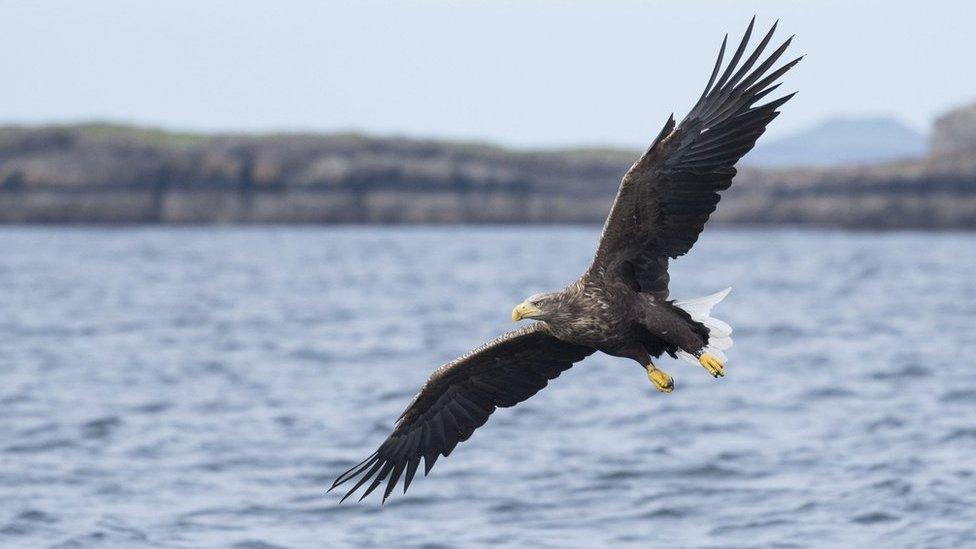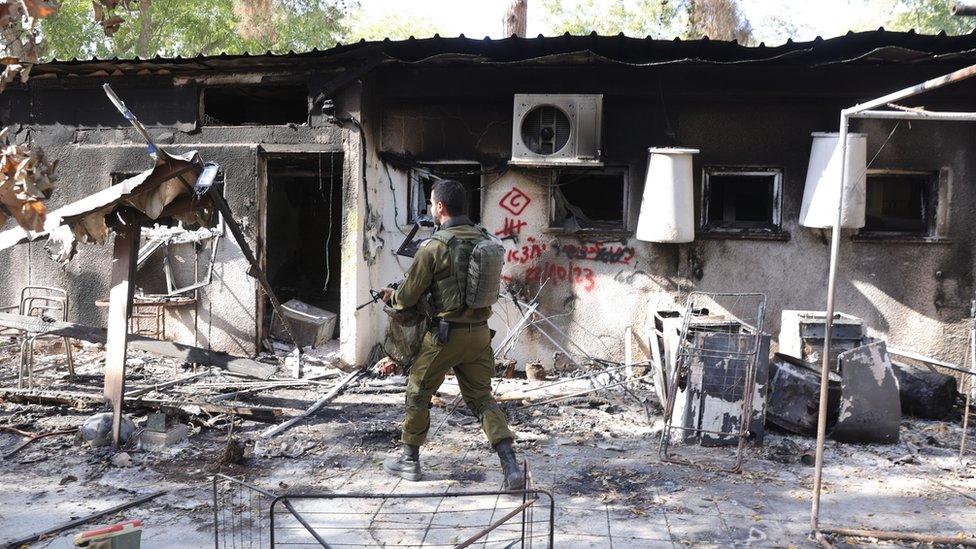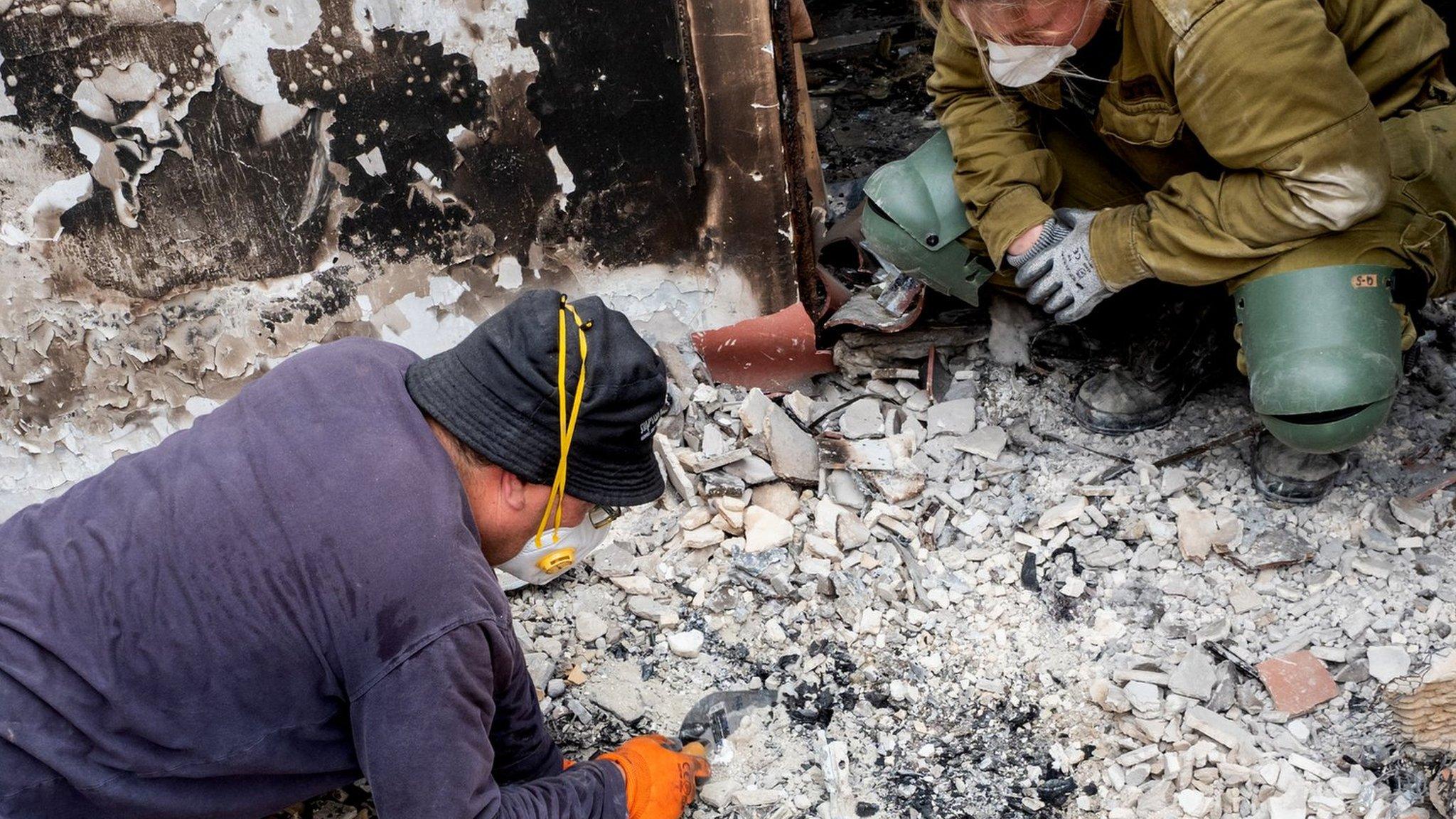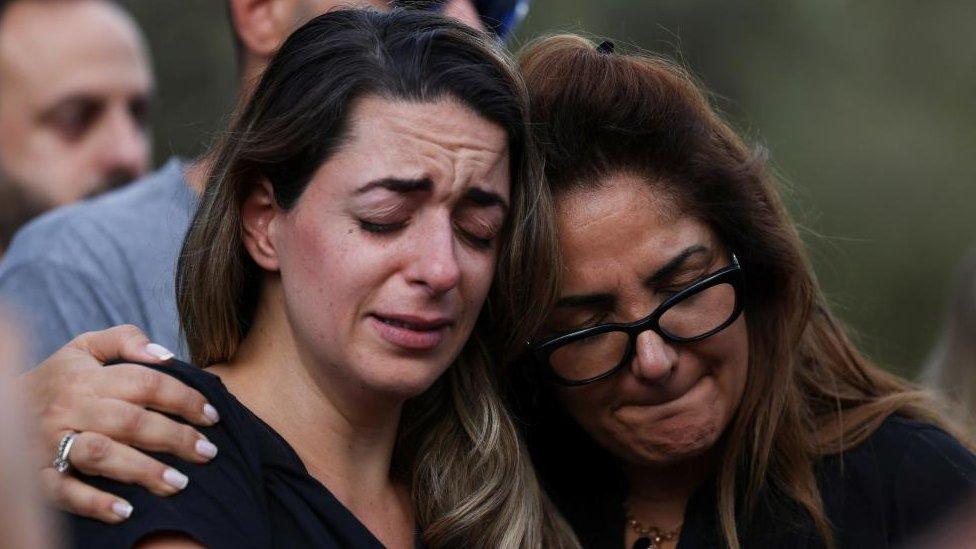Ecologist tracks birds of prey to find Israeli dead
- Published

A white-tailed eagle, near extinction in Israel, was used to locate dead bodies after Hamas's attack.
An ecologist is using birds of prey to help Israel's army recover dead bodies at the sites where Hamas attacked on 7 October.
Ohad Hatzofe, of Israel's Nature and Parks Authority, tracks the migratory patterns of numerous birds using GPS tracking devices.
His data helped to locate four corpses after he was asked for help on 23 October.
Another bird found a few other locations of interest, Mr Hatzofe said.
The Israeli ecologist said he first reviewed the data of a white-tailed eagle that had been born in Israel. It was hatched in the country in an effort to reintroduce the bird after its species' extinction in the region.
It had just returned very hungry from a long migration north of Moscow and proved to be a keen searcher.
Mr Hatzofe reviewed its movements and chose certain positions where it had stopped. He then shared that data with the Israel Defense Forces (IDF), which found the four corpses.

More on Israel-Gaza war
Follow live: Latest updates
From Gaza: Palestinian given two hours to evacuate whole neighbourhood
From Israel: Pain still raw a month after Hamas attacks
History behind the story: The Israel-Palestinian conflict

The IDF did not respond to BBC News' request for comment.
An estimated 1,500 Hamas gunman breached the Gaza Strip's perimeter fence in southern Israel on 7 October and systemically attacked nearby Jewish communities and military posts. An outdoor music festival was also targeted.
The attacks saw more than 1,400 people killed, and more than 200 people were taken hostage.
More than 10,800 people have been killed in Gaza since, according to the Hamas-run health ministry, including more than 4,400 children.
Mr Hatzofe said he tracks where the birds stop with GPS tracking devices. While the trackers do not have video, they can tell him how the bird is moving, what elevation it is at and other data points that can suggest areas of interest. He then cross-references that information with satellite imagery.
The ecologist said it was very fulfilling to help the effort, particularly as it can help answer lingering questions for the victims' families.
"To live in this uncertainty and know that some might never be found is the worst thing on earth," he said.
Mr Hatzofe is also living in that uncertainty.
He said his friend Ohad Yahalomi and Yahalomi's 12-year-old are still missing after Hamas attacked their home in Nir Oz, a kibbutz in southern Israel.
Mr Yaholomi was shot during the assault and has not been seen since. His wife, who has spoken to the press, and two youngest children were able to escape.

Mr Hatzofe said his friend had gone missing in the attack on Nir Oz, a kibbutz in southern Israel.
"It is very sad," said Mr Hatzofe, who hopes to soon join the search for the dead in person.
He also hopes that the war will end soon, as it has caused harm to Israelis and Palestinians.
But while many in Israel can disagree about politics in times of peace, he emphasised that they work together during wartime.
"When there is danger, we are all working together toward the same goal," Mr Hatzofe said.
There are few remaining to do the work that Mr Hatzofe does since Hamas's attack, because so many of his colleagues have been called up for military service.
So for now, he said he is happy to "use my knowledge of the movement of birds and their behaviour to help wherever we can".
Related topics
- Published7 November 2023

- Published7 November 2023
